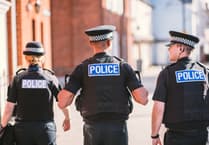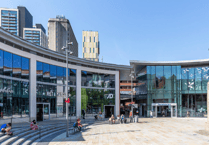WOKING Liberal Democrats are demanding urgent action to tackle ambulance response times.
Data obtained under a freedom of information request by the Lib Dems show that potential heart attack and stroke victims in Woking are waiting an average of 26min 8sec for an ambulance.
The figure refers to category 2 ambulance calls, which cover serious incidents such strokes and chest pain which may require rapid assessment or urgent transport. The NHS target for a category 2 call is 18 minutes.
Comparative response times in 2019-20 were 18min and 6sec and 16min 56sec in 2020-21.
Councillor Will Forster, Lib Dem parliamentary candidate for Woking, said: “Behind these figures are devastating stories of pensioners left stranded for hours, or families watching a loved one die before a paramedic could reach them.
“Paramedics on the frontline do an incredible job day in, day out, looking after people in their time of need.
“But our overstretched local NHS services are collapsing under the strain of years of neglect under this Conservative government.
“The Lib Dems have provided a clear plan to tackle these shocking delays. That means addressing workforce shortages, fixing the social care crisis and ending the shortage of hospital beds, all of which are leaving patients in ambulances stuck outside A&E for hours.”
Woking is served by South East Coast Ambulance Service (SECAmb), which accepts “that there remains a lot to do to improve our response times”.
It does, however, note that “SECAmb remains ahead of the national average for the two highest categories of 999 call and has the current shortest response times nationally for category 2 calls, which is where more than 60% of our 999 calls fall”.
A spokesman for SECAmb said: “As we continue to face high demand, we know that some patients are waiting longer than they should for a response.
“We are sorry and doing everything we can to reach those who need assistance as quickly as possible, while prioritising our response to our most seriously ill and injured patients.
“We would like to thank our staff and volunteers for their hard work and commitment,” the spokesman added.
“We continue to work closely with hospitals to minimise handover delays and ensure we are best placed to attend patients requiring an ambulance response.”




